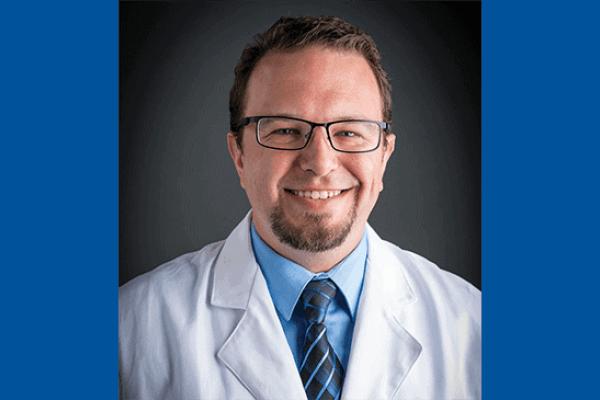Leadership Lived Out Lives on Through Alumni

Jarrod Keeler, MD, participated in the Duke Otolaryngology Residency Program from 2010 to 2015. He’s now at St. Luke’s University Hospital in Bethlehem, Pennsylvania, where he specializes in Otolaryngology and Facial Plastic and Reconstructive Surgery. He also serves as Chief of Surgery for four of St. Luke’s hospitals and is core faculty for the first private-practice otolaryngology residency in the country.
During his time at Duke, Dr. Keeler was part of the first Leadership Lived Out program. Leadership Lived Out focuses on improving patient care by examining who we are and how we interact with patients and with one another as a healthcare team. Participants engage in leadership development seminars on issues such as problem-solving, decision-making, self-awareness, empathy, motivation, and empowerment.
Dr. Keeler brought the idea to his residents and continues to expand the program. He spoke with us about his experience and the importance of developing leaders in otolaryngology.
How would you sum up your experience at Duke and with Leadership Lived Out?
I found it exceptionally helpful in more ways than I have ever been able to truly express. I went to Duke at the same time as their current residency Associate Program Director, Russell Kahmke, and Dr. Walter Lee was on faculty while I was there.
All of the physicians who were part of that program and the leadership that they taught me, both within this program and throughout my five years there, left me wanting to ensure that I make an impact on not just my residents’ and patients’ lives, but the rest of medicine.
What did you learn through Leadership Lived Out?
One of the first lectures we had left such an impression on me that I still remember it. It was about how physician leadership at hospitals had changed. Physicians used to run almost all of the hospital systems, and, because of changes to medicine and the way that various institutions are run, physicians run less than 10 percent of the hospitals (at the time of the lecture). However, physician-run hospitals have a much better rate of morbidity and mortality compared to non-physician-run hospitals, and cost is not significantly increased. It was such a dramatic insight that it actually left me wanting to make leadership a focus for the rest of my career.
The speaker was a physician and Air Force Colonel, so he came in with a background in leadership training and leadership studies from the military. My family was military and there was a strong belief that you, in fact, can teach leadership, just like any skill. Our world, unfortunately, does not usually view things that way, despite evidence to the contrary.
Part of the reason I came to Bethlehem after my residency and fellowship was that we wanted to start a residency. We didn't know that it would be the first-ever private practice ENT residency, but it was. I wanted to make certain that I passed the importance of leadership on to another generation. So, I found the slides from the first Leadership Lived Out presentation at Duke and showed them in my first lecture to our residents. It impacted my residents similarly to how it had affected me — that if they were willing to take on leadership roles, we not only can improve patient care, but do it without a substantial cost to the health system.
Have you done anything different with your program from what they were doing at Duke when you were here?
The Duke program was an every two-year cycle. Our program is more free-form because medicine is changing, and the things we need to educate folks on are not the same from year to year. So we educate our residents on things like billing and the changes that go on within the Medicare health system because as residents and as physicians, we have to understand this. Without an understanding of the dollar signs of medicine, our community cannot continue to exist.
Within otolaryngology, there has been a decrease in the number of private practice physicians and an increase in hospital-employed status. There is a movement away from a solid general education to fellowship-based training, which has a negative impact on a lot of small communities. Communities have lost ENT representation as a result. For example, we recently had a physician just north of us pass away, and now that entire community is left with no one to care for them within 30 miles.
We have educated our residents that they need to consider private practice and community practice as something that is not just a worthwhile goal for the community, but something that all of otolaryngology actually needs — because someone has to support the large quaternary referral centers such as Duke or, up in our area, Penn or Jefferson.
But similarly, when we as physicians abdicate responsibility to the billers and coders within the hospital, as we abdicate responsibility to the rest of the management of the hospital, we lose sight of how these things are done, and therefore we lose advocacy within the medical system and within the politics of medicine. We lose our seat at the table.
What do you want your residents to take away from the program?
I want them to shape the future of otolaryngology and be leaders in the field. The goal of the otolaryngology program at Duke was to train tomorrow's leaders, and, through our residency program, we have given the Duke program a legacy — living through graduates of Duke’s program and the impact we make on others. I think that shows the impact and potential of the program.